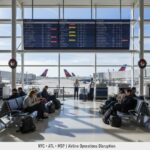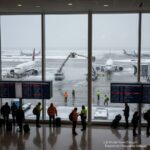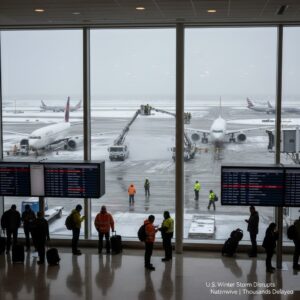In a groundbreaking survey conducted by Allianz Partners USA, the “15th Annual Vacation Confidence Index,” it has been discovered that consumer confidence in taking vacations continues to soar. The study found that an impressive 61 percent of Americans plan to book a summer trip that takes them at least 100 miles away from home for a duration of one week or more. This figure represents a one-point increase from the previous year and a staggering 19-point surge since 2019, demonstrating a significant upward trend in vacation aspirations.
What’s more, the survey shed light on the increasing importance placed on annual summer vacations, with a remarkable 74 percent of respondents emphasizing their significance. This marks a substantial 14-point rise since 2019, highlighting the growing recognition of the benefits and value that a well-deserved summer getaway brings.
While there was a slight decline of two points among Americans aged 18 to 34 compared to the previous year, this demographic remained the most confident, with 67 percent expressing their intentions to embark on a summer vacation. In contrast, 64 percent of individuals aged 35 to 54 demonstrated similar confidence levels, showing no year-over-year increase. The 55-plus age group witnessed a three-point upswing, reaching 53 percent.
Interestingly, gender and income disparities were also identified as contributing factors to vacation confidence. Men (65 percent) exhibited higher levels of certainty in planning a summer escape compared to women (57 percent). Financial considerations also played a role, as 75 percent of respondents from households earning over $100,000 a year expressed confidence in taking a summer vacation, while 59 percent of those earning $50,000 to $100,000, and 48 percent of individuals earning less than $50,000 shared the same sentiment.
Conversely, among those who opted not to take a summer vacation, 57 percent cited financial concerns as the primary barrier, a figure consistent with the previous year. Notably, individuals aged 35 to 54 (67 percent) were more likely to express a reluctance to spend money compared to their younger (18 to 34; 54 percent) and older (55-plus; 51 percent) counterparts.
Furthermore, the survey highlighted a slight increase of two points, with 13 percent of respondents citing “taking time off from work” as a hindrance to their vacation plans. Surprisingly, fewer individuals found vacation planning stressful or time-consuming, with only 7 percent expressing this concern—a three-point decrease from the previous year. This shift could be attributed to the easing of travel restrictions, enhanced travel planner resources, or the blurring boundaries between business and leisure travel.
Since 2009, the Vacation Confidence Index has been conducted annually by Ipsos Public Affairs, a renowned national polling firm, on behalf of Allianz Partners USA. For the purposes of this study, a vacation is defined as a leisure trip lasting at least one week and taking place at a destination located a minimum of 100 miles away from one’s home.
















More Stories
Cyprus’ Short-Term Rental Boom: Nearly 2M Guest Nights Fuel EU Tourism Surge!
US Winter Storm Fury: 2,838 Delays/114 Cancellations—Delta Tops w/ 295 Delays!
Morocco’s Tourism Miracle Record 19.8M Visitors 2025, $13.5B Revenue Surge!